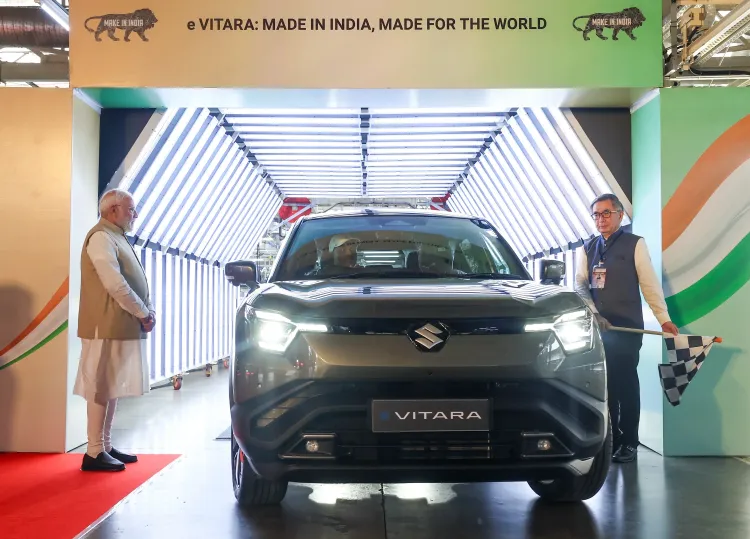What is the New Rs 2,000 Crore Subsidy Scheme for EV Charging Stations?

Synopsis
Key Takeaways
- Rs 2,000 crore allocated for electric vehicle charging station subsidies.
- Subsidies of up to 100% for public access charging stations.
- Priority given to urban centers with populations over one million.
- Project Implementation by BHEL and management by IFCI.
- Standards established for various charging capacities.
New Delhi, Sep 29 (NationPress) The Ministry of Heavy Industries (MHI) has released operational directives that allocate a total of Rs 2,000 crore to provide subsidies of up to 100 percent for the establishment of public charging stations for electric vehicles in urban areas and along highways as part of the Rs 10,900 crore PM E-DRIVE scheme.
Government facilities, including offices, hospitals, educational institutions, and central public sector enterprises, will benefit from a 100 percent subsidy covering both upstream infrastructure and EV charging equipment, provided these chargers are accessible to the public at no cost, according to the guidelines.
For bus stations managed by state transport bodies, metro stations, municipal parking areas, public sector ports, and toll plazas controlled by the NHAI or state governments, subsidies will encompass 80 percent for upstream infrastructure and 70 percent for EV supply equipment costs.
Locations such as airports, railway stations, and state-run fuel retail outlets like Indian Oil, Bharat Petroleum, and Hindustan Petroleum will be eligible for an 80 percent subsidy on infrastructure and 70 percent on charging equipment.
Battery swapping and charging stations will also receive 80 percent subsidy support.
The scheme prioritizes urban areas with populations exceeding one million, smart cities, and satellite towns linked to the seven major metros (Delhi, Mumbai, Kolkata, Chennai, Hyderabad, Bengaluru, and Ahmedabad), along with state capitals and heavily trafficked national and state highways. Public transport hubs such as railway stations and airports are also set to receive infrastructure assistance.
Bharat Heavy Electricals Ltd (BHEL) has been appointed as the Project Implementation Agency, while IFCI will act as the Project Management Agency. BHEL will also create a National Unified Hub and a mobile application to streamline the integration of EV chargers, providing features like discovery, real-time updates, slot booking, and payment options.
Subsidies will be distributed in two phases — 70 percent at the procurement stage and the remaining 30 percent post-commissioning and integration with the Unified Hub.
The guidelines have also established charging standards that specify up to 12 kW for two- and three-wheelers, and fast chargers ranging from 50 kW to 500 kW for cars, buses, and trucks.









